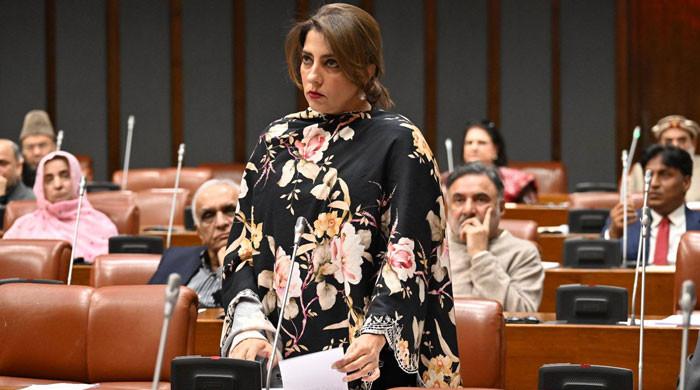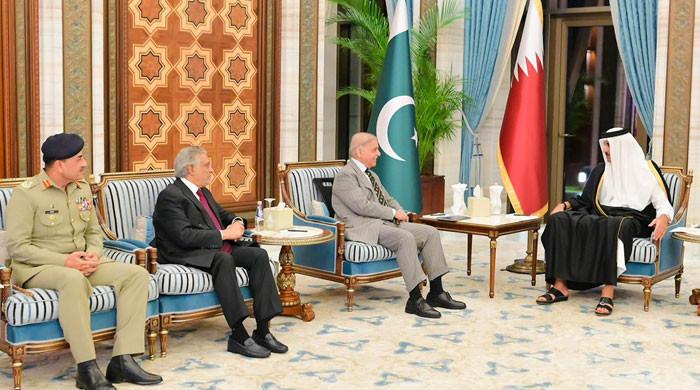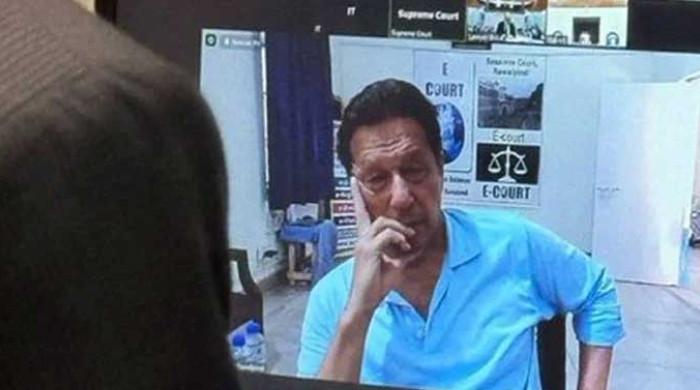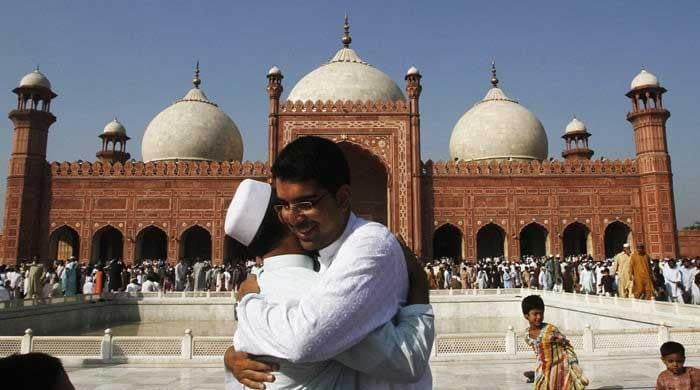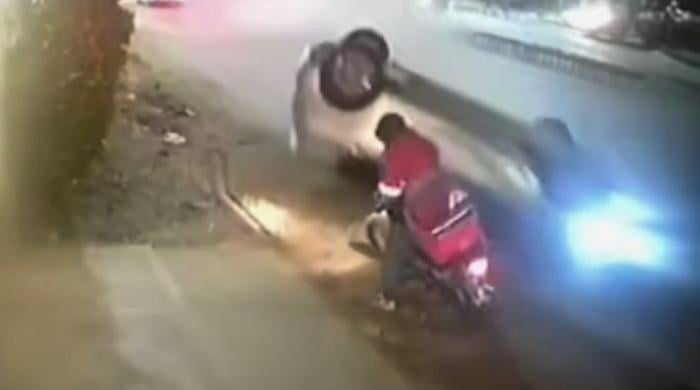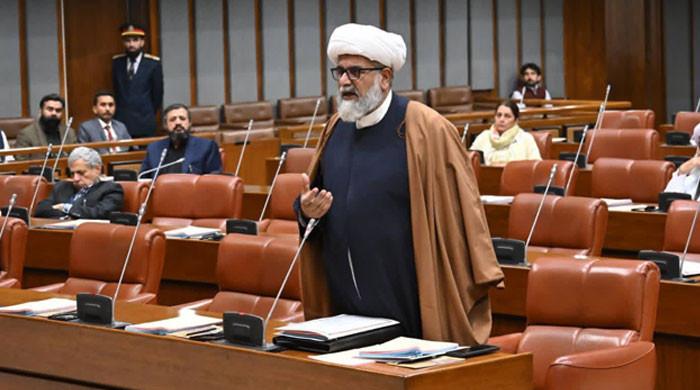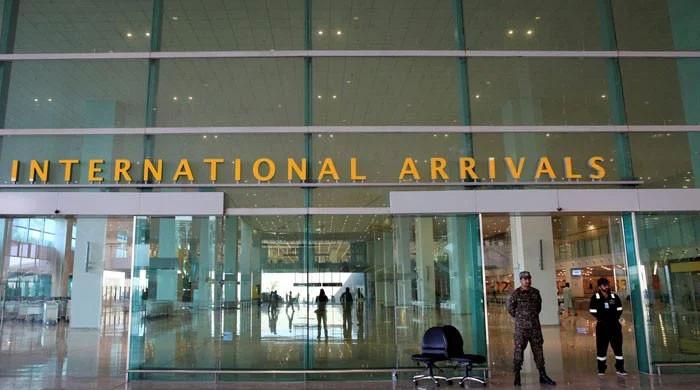Imran Khan was ousted on Gen Bajwa's directives: Fazlur Rehman
“I was personally against the no-confidence move," JUI-F's chief says
February 15, 2024
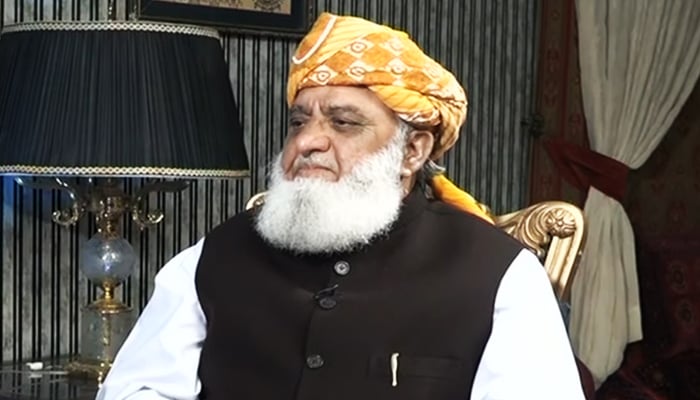
- Fazl says he was against the no-confidence motion against Khan.
- "Faiz told me that I can do whatever I want within the system."
- Politician says May 9 narrative buried if establishment deems polls fair.
Jamiat Ulema-e-Islam (JUI-F) Emir Maulana Fazlur Rehman said Thursday that the no-confidence motion that ousted former prime minister Imran Khan was tabled on the directives of ex-army chief General (retired) Qamar Javed Bajwa.
In an interview on a private news channel, Fazl, who was the chief of the multi-party alliance Pakistan Democratic Movement (PDM) responsible for removing Khan, said: “I was personally against the no-confidence move [...] but if I had said no despite insistence of other parties, then an impression would’ve been given that I ‘saved’ the PTI founder.”
The PDM removed the Pakistan Tehreek-e-Insaf (PTI) government in April 2022 and led by Shehbaz Sharif, the multi-party alliance ruled the country for 16 months before handing over the reins to the caretaker set-up.
At first, Khan insisted that the US had him removed — a claim that the Joe Biden administration vehemently rejected. However, the ex-prime minister later shifted the blame to Gen Bajwa.
In an interview in February last year, Khan, citing an apparent conversation of the retired general with a journalist, said General Bajwa had “accepted and clarified that he was behind our government's ouster”.
After he became the first prime minister to be ousted via a no-trust motion, Khan continued a tirade against the establishment; however, politicians also said that the ex-army chief was involved in the PTI’s ouster.
Fazl, during the interview, said: “While the Pakistan Peoples Party (PPP) was running the movement for a no-confidence motion, Lt Gen (retd) Faiz Hamid told me that I could do whatever I wanted, but within the system.”
The JUI-F chief said Hamid told him that he could not “do anything outside the system” — meaning that every move should be made inside the parliament, not on the streets.
“But I rejected his directions,” he said, but noted that later on, the Balochistan Awami Party (BAP), Muttahida Qaumi Movement-Pakistan (MQM-P), and others left the PTI-led government.
“When they said that [the anti-PTI] is now in majority, I had to agree with them otherwise it would’ve been said that I helped save Imran Khan,” the JUI-F chief, who has rejected February 8 election results, said.
Government formation
The February 8 did not return a clear majority for anyone, but independent candidates backed by Khan won 92 out of 264 seats, making them the largest group, followed by PML-N (79) and the PPP (54).
However, every party, even the PML-N which is seemingly about to form the next government, is unhappy with the election results.
For his party, Fazl has decided to join the parliament, but not become part of the government. “The decisions will not be made in the parliament anymore, they will be made on the streets.”
He noted that apparently, “rigging in elections” benefited the PML-N and there’s a rumour that Nawaz was not winning the Lahore seat.
Fazl said that PML-N’s prime minister candidate Shehbaz had paid him a visit to speak about government formation, but he rejected the idea and instead called on the Nawaz-led party to join him in the opposition.
“But Shehbaz left without responding to my offer [...] for me, the parliament has lost its credibility. If the establishment this that the elections were fair, then the May 9 narrative has been buried.”




